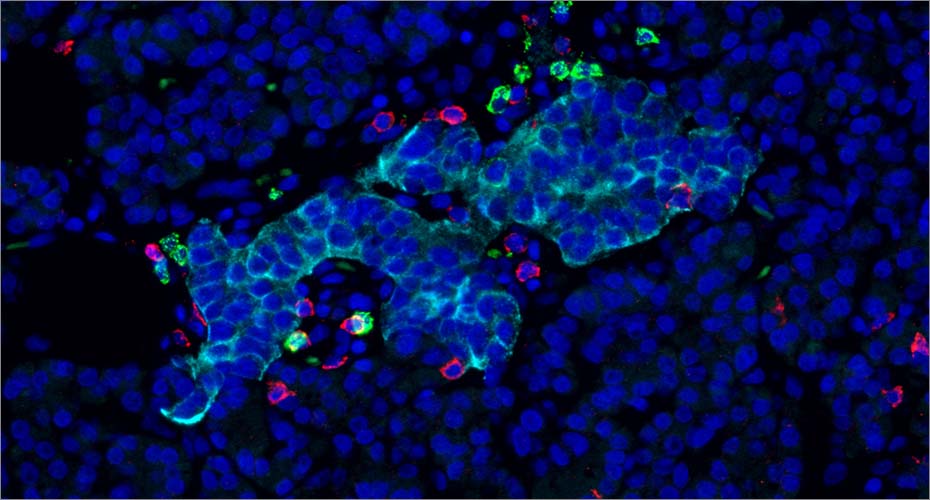Professor Noel Morgan describes his research into the future prevention of type 1 diabetes
Dr Kate Ellacott - molecular mechanisms which control food intake and body weight by the brain
Cell Biology of Diabetes
The Cell Biology of Diabetes group's research includes investigating RNA mediated mechanisms of disease in Type 2 Diabetes along with diabetes complications.
Its aim is to discover the underlying mechanisms which drive changes in beta cell fate, function and survival in diabetes and to discover therapeutic treatment targets for managing the disease. Similarly, it is investigating those mechanisms which lead to the development of diabetes complications, such as diabetic retinopathy, nephropathy and cardiovascular disease in a number of different relevant primary human cell lines.
The group's interest in Diabetes forms part of wider research into understanding mechanisms that drive cellular senescence and age-related disease.
| Name | Role |
|---|---|
| Professor Lorna Harries | Professor of Molecular Genetics |
| Associate Professor Mattia Frontini | Associate Professor of Cell Biology and BHF Research Fellow |
| Dr Craig Beall | Senior Lecturer |
| Dr Nick Owens | Lecturer in Data Science |
| Dr Carol Yang | Lecturer in Cell Biology |
| Dr Katarina Kos | Clinical Senior Lecturer |
| Dr Nicola Jeffrey | Post Doctorate Research Fellow |
| Dr Paul Weightman Potter | Postdoctorate Research Fellow |
| Dr Ana Miguel Cruz | Postdoctorate Research Associate |
| Jodie Evans | Graduate Research Associate |
| Jiping Zhang | PhD Student |
| Kathryn Hinton | PhD Student |
| Katie Partridge | PhD Student |
| Asmaa Alkhalidi | PhD Student |
| Wyn Firth | PhD Student |
The group is always very happy to set up collaborations with other groups working in Diabetes and have had many successful projects working with the Monogenic Diabetes and Islet Biology Group, as well as College of Medicine and Health researchers in other disciplines.
External and international collaborations include:
- Richard Faragher and Lizzy Ostler (Brighton)
- Roger Smith and Jay Dudhiya (RVC)
- James Brown (Aston)
- The Jackson Laboratory (US)
- UCONN (US)
- Murdoch University (AUS)
- NIH (US)
- MIGAL Institute (Israel)
- Monash University (AUS)
- Henry Ford Hospital (US)
- CALICO (US).
Recent key papers
Please find a selection of our key and landmark papers below. Full publications lists are available on individual biographies:
Cellular stressors may alter islet hormone cell proportions by moderation of alternative splicing patterns. Nicola Jeffery, Sarah Richardson, David Chambers, Noel G. Morgan, Lorna W. Harries. Human Molecular Genetics 2019 Aug 15;28(16):2763-2774.
A cautionary tale: the non-causal association between type 2 diabetes risk SNP, rs7756992, and levels of non-coding RNA Locke JM, Wei FY, Tomizawa K, Weedon MN, Harries LW, CDKAL1-v1. Diabetologia. 2015 Apr;58(4):745-8.
Targeted allelic expression profiling in human islets identifies cis-regulatory effects for multiple variants identified by type 2 diabetes genome-wide association studies. Locke JM, Hysenaj G, Wood AR, Weedon MN, Harries LW. Diabetes. 2015 Apr;64(4):1484-91.
The Cell Biology of Diabetes research group uses the following research facilities and technologies:
- The Exeter Sequencing Service
- RILD Molecular Biology Resources
- NIHR Clinical Research Facility (CRF)
- High Performance Computing
More details of all of these can be found here.

